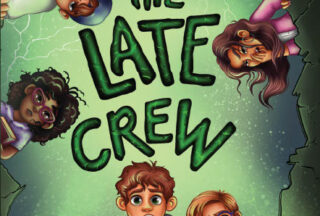Mark is a former carer to his mum Jean, who had dementia and died in 2021. Jean was looked after at home for as long as possible and then moved into a care home during the Covid pandemic.
Mark now volunteers for Alzheimer’s Support and Carer Support Wiltshire. The below is a transcript from a presentation that Mark gave at a relatives’ support group for the Orders of St John Care Trust (OSJCT), who ran the care home that his mum was staying in at that time. The presentation is about the practical application of the life story framework. The support group session was run in partnership with the OSJCT Admiral Nurse Team and the relatives/representatives of OSJCT residents.
I’m Mark and I’ve been a family carer for my Mum Jean since she was diagnosed with dementia in 2014.
This session is about the practical application of the life story framework and I’ll give some examples of how we have used some relatively simple activities to help support and maintain Jean’s wellbeing within a personalised overall care package.
My own caring role has changed over time. Initially, this included providing a multitude of physical supporting functions to help Jean in maintaining her independence and enabling her to remain living in her own home for as long as possible.
This inevitably changed as the dementia progressed, and once it was clear she could no longer live safely and well in her own home, we made the decision to move her into residential care.
This was a huge and difficult upheaval for Jean – we were in Covid lockdown and she had been removed from her familiar surroundings into an alien environment of restrictions with no familiar faces to help her adjust. This can only have added to her confusion and unsettled her even more.
At this point I had to reassess my role and I had to develop a completely different mindset to help with what was needed for Jean to enable her to have the best experience possible in the changed and, for her, increasingly confusing circumstances.
At this point, we started to adopt the life story approach. This is a really useful framework that can be used to provide real and meaningful personalised care to benefit the individual.
Caring really needs a partnership approach – we all adopt certain roles in caring and, although the physical aspects of caring had now transferred to the home, it became apparent to me that I still had a significant role to play as she gradually lost her sense of self.
I realised that, although Jean was struggling to communicate what she liked and wanted, I could help by using the life story to provide those links to life experiences and the things that helped her to retain her sense of self.
In developing the life story approach to support Jean’s care, we identified three key activities which helped make a real difference.
Example 1 – I’ve called this ‘nature therapy’ although this is a fancy term for just getting out into the local area, town and park.
Jean loved spending time in the garden and although she could no longer actively participate in gardening activities, we realised that taking her out in a wheelchair to visit the local park was a simple activity that she really liked. Although she sometimes wasn’t enthusiastic about getting ready to go, once out, you could see a real lift in her mood.
I pushed the wheelchair and provided a commentary as we went past the shops and places in town, and sometimes these brought back memories that sparked a small conversation.
We would then head for the park – walking around the lake, watching the ducks and swans and looking at the gardens and flowers. A visit to the park wasn’t complete until we visited the snack hut for ice cream, then we would just sit listening to kids in the play park and watching people play tennis.
This relatively simple activity seemed to bring moments of normality, helping to gently stimulate her mind and distract from an increasingly confusing world where not much makes sense any more.
Example 2 – Use of photographs as an ‘anchor’ during times of confusion and distress.
Growing up, Jean spent a lot of time with her younger brother, who sadly became ill and, although he died when he was 20, Jean had a very strong bond to him and this gave her some comfort in more recent times.
Despite Jean having memory issues and gradually losing her sense of self, we discovered that, during moments of confusion, agitation or distress, showing her a specific photograph of her brother seemed to help.
Rather than making her sad, the photo gave Jean a strong attachment and prompted memories and feelings that she could relate to when nothing else was making sense for her.
Seeing the photo seemed to give Jean a strong sense of comfort and this provided an anchor and understanding about who she was and this provided a good distraction to help ease confusion and distress.
Example 3 – dancing, music and a singing group.
Jean went to local dances as a teenager and this became a great interest and hobby which extended for many years.
Although her mobility had declined and she could no longer dance, we identified that she could still get some enjoyment from the music.
I found a local singing club and took her along. This took a little encouragement, as sometimes Jean was reluctant to try new things and not always keen to participate.
Once familiar with it, a real lift in her mood was apparent and she would tap her feet to the music and burst into song.
Overall these outings lifted Jean’s spirits, resulting in a real sense of calm and contentment for her.
So, in summary:
When someone is experiencing dementia and losing their sense of self it can be really difficult for the care home and carers to discover meaningful background details about the ‘real’ person they are looking after; as the ability to remember and communicate may become affected.
Having a family member, close relative or friend involved in developing the life story can provide really useful insight into what the resident is like and their interests, as some of this may not be apparent to the care staff.
By working with the care home staff, becoming more involved and giving your perspective in identifying topics and themes, you can be an advocate for your loved one. This can really help support their care by enabling their personalised care plan to have activities adapted to suit the resident and make it meaningful for them.
Ultimately, you can make a real difference in helping your loved one. They may have dementia, but you can be a part of improving their experience and really supporting their wellbeing.
For Jean, a little thought and understanding about who she was and what she liked resulted in some really simple activities; but blending these into her care provided some sense of normality to an increasingly confusing world where very little was making sense.
This all helped bring a real sense of comfort and contentment, during the last stages of her dementia journey and her life.





